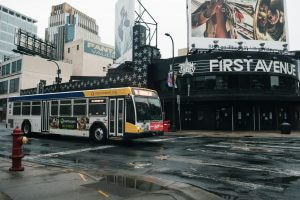Reviving Wrightbus: Leading the Charge in Hydrogen-Powered Public Transport

Wrightbus, a bus manufacturing company based in Northern Ireland, was on the verge of collapse before Jo Bamford, heir to the JCB empire and a hydrogen fuel advocate, intervened. Bamford saw an opportunity to transform the 80-year-old company into a leader in low-emission public transportation. Today, Wrightbus employs 1,650 people, with plans to increase to 1,800. The company is now the UK’s fastest-growing large industrial firm, with production doubling in a year and annual revenue projected to hit a record £500 million.
Wrightbus focuses on producing zero-emission buses, including battery-electric and hydrogen fuel cell buses. Of the 1,000 buses produced this year, only 12% are diesel, with the rest being electric or hydrogen-powered. Next year, Wrightbus plans to build around 1,250 buses, with no diesel orders on the books. By 2025, 20% of its new orders will be hydrogen-powered.
Wrightbus’s hydrogen buses have gained traction in the UK and Europe, with significant orders from Germany. The company is also expanding into the Benelux countries and France. Hydrogen buses offer advantages for high-frequency, long-mileage routes, making them ideal for commercial vehicles and inter-city coaches.
Despite the higher costs and lack of refueling infrastructure compared to battery-electric vehicles, hydrogen fuel cells are seen as a viable alternative for specific applications. Wrightbus aims to become a top three green bus manufacturer in Europe, competing with major firms like MAN Truck & Bus and Solaris. The company’s success showcases the potential of hydrogen in the future of clean transportation.
Newer Articles
- Apple Launches ‘Apple Intelligence’ AI Features at WWDC2024: Create Your Own Emojis and Send SMS via Satellite
- Musk Criticizes Apple-OpenAI Partnership: Threatens Office Ban on Apple Products
- Unveiling the Hidden Danger of the Cascadia Subduction Zone

